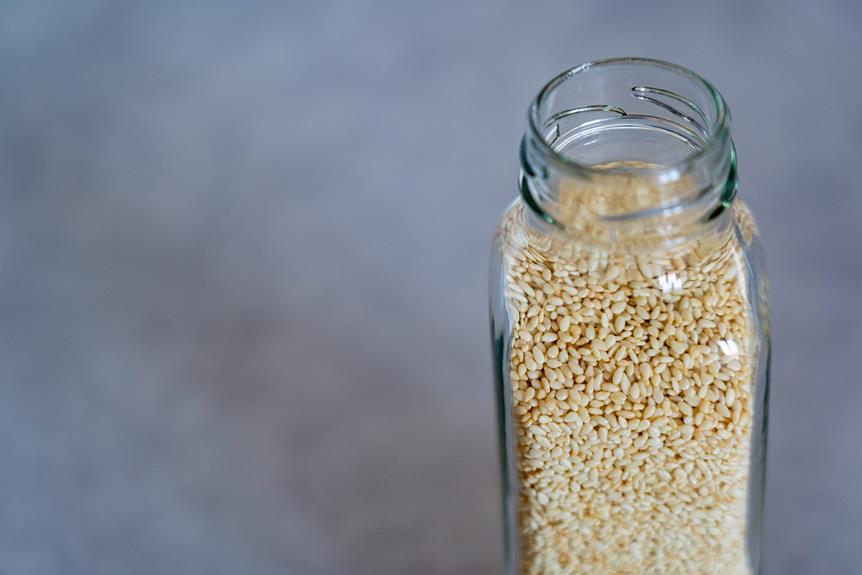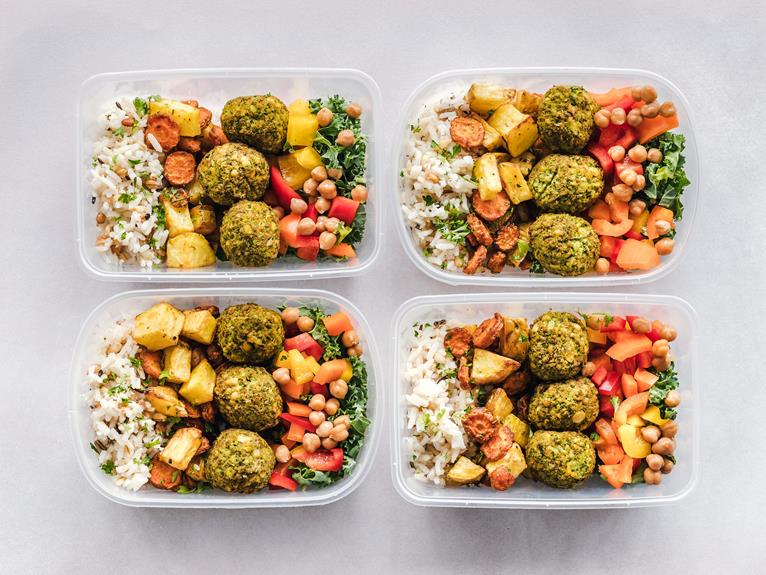The Mediterranean diet is renowned for its health benefits and delicious flavors, making it a popular choice for individuals looking to improve their well-being through mindful eating.
Meal planning for a Mediterranean diet involves incorporating a variety of fresh fruits, vegetables, whole grains, lean proteins, and healthy fats, all inspired by the traditional eating habits of the Mediterranean region.
This approach to meal planning not only promotes heart health and weight management but also offers a diverse and enjoyable culinary experience.
Benefits of a Mediterranean Diet
The Mediterranean diet has many benefits that can improve your health. Research shows that following this diet can lower the risk of heart disease, stroke, and certain types of cancer.
One major benefit of the Mediterranean diet is its positive impact on heart health. The diet includes heart-healthy fats like olive oil and nuts, which can lower cholesterol levels and reduce the risk of heart disease. The diet is rich in antioxidants from fruits and vegetables, which protect against oxidative stress and inflammation.
Another benefit of the Mediterranean diet is its association with a reduced risk of certain types of cancer. Studies have found that the diet’s emphasis on plant-based foods and limited intake of processed meats can lower the risk of colon, breast, and prostate cancer.

Key Principles of the Mediterranean Diet
To successfully adopt the Mediterranean diet, focus on these key principles that guide healthy eating patterns. By embracing these principles, you can enjoy a delicious and nutritious diet while reaping numerous health benefits.
- Focus on plant-based foods: Make fruits, vegetables, whole grains, legumes, nuts, and seeds the main stars of your meals. These foods are packed with essential nutrients, fiber, and antioxidants that promote good health and protect against chronic diseases.
- Incorporate healthy fats: Include healthy fats like olive oil, avocados, and nuts in your daily meals. These fats not only add flavor and satiety but also provide important nutrients while reducing the risk of heart disease and inflammation.
- Moderate portions of animal protein: While the Mediterranean diet includes moderate amounts of fish, poultry, and dairy products, it emphasizes reducing red meat consumption. Opt for lean sources of animal protein and enjoy them in smaller portions to maintain a balanced diet.
Essential Mediterranean Diet Foods
If you’re following a Mediterranean diet, it’s important to include a variety of nutrient-rich foods in your meals. The Mediterranean diet is known for its focus on whole, unprocessed foods that are both nutritious and delicious. Here are some essential Mediterranean diet foods that you should add to your shopping list:
- Fruits: Apples, oranges, grapes, and berries are all great choices. These fruits aren’t only tasty but also packed with vitamins and antioxidants.
- Vegetables: Tomatoes, cucumbers, spinach, and peppers are just a few examples of the vegetables you should include in your diet. They provide essential nutrients and add flavor to your meals.
- Whole Grains: Opt for whole wheat bread, brown rice, and quinoa to get your fill of whole grains. These foods are rich in fiber and can help keep you feeling full and satisfied.
- Legumes: Chickpeas, lentils, and beans are excellent sources of protein and fiber. They’re versatile ingredients that can be used in a variety of Mediterranean dishes.
- Olive Oil: Extra virgin olive oil is a staple in the Mediterranean diet. It’s a healthy source of fat and adds a delicious flavor to your meals.
When shopping for these foods, prioritize fresh fruits and vegetables, whole grains, legumes, and high-quality olive oil. Choose seasonal produce whenever possible and consider buying organic options.
Aim to include a variety of colors in your cart to ensure you’re getting a diverse range of nutrients. Read food labels carefully and opt for minimally processed products without added sugars or unhealthy fats.
How to Stock Your Mediterranean Pantry
When stocking your Mediterranean pantry, it’s important to have essential ingredients on hand for creating tasty and healthy meals. Here are some tips and must-have Mediterranean pantry items to help you get started:
- Olive oil: This staple ingredient is a necessity in any Mediterranean kitchen. It’s not only used for cooking but also for dressing salads and adding flavor to dishes. Choose extra virgin olive oil for its rich taste and health benefits.
- Whole grains: Make sure to have quinoa, brown rice, and whole wheat pasta in stock. These grains are packed with fiber, vitamins, and minerals, and are a key part of the Mediterranean diet.
- Canned tomatoes: Canned tomatoes are a versatile ingredient in Mediterranean cooking. Whether you’re making pasta sauce, stew, or soup, having canned tomatoes on hand ensures you always have a base for your dishes.
Planning Your Weekly Mediterranean Meals
Start by creating a weekly meal plan that follows the Mediterranean diet. Planning your meals ahead of time helps you stay organized and ensures consistent adherence to the diet throughout the week.
To create your plan, gather a variety of Mediterranean diet recipes that you enjoy. Look for recipes with fresh fruits and vegetables, whole grains, lean proteins, and healthy fats like olive oil.
Include a mix of salads, soups, grilled dishes, and vegetarian options to keep your meals interesting. Also, consider incorporating flavors and cuisines from the Mediterranean region.
Once you have your recipes, schedule breakfast, lunch, dinner, and snacks for each day of the week. Take into account your preferences, dietary needs, and any activities or events that may affect your meal times.
Planning allows you to have all the necessary ingredients on hand and eliminates the stress of deciding what to cook each day. Stick to your plan, but be flexible and make adjustments as needed.
Meal Prepping for a Mediterranean Diet
To effectively implement your weekly meal plan, simplify your cooking process by meal prepping for a Mediterranean diet. Meal prepping can save you time, energy, and stress while ensuring you have delicious and nutritious meals ready to enjoy throughout the week. Here are three tips to help you get started:
- Plan your meals: Take some time each week to plan out your Mediterranean recipes. Choose a variety of dishes that include lean proteins like fish and poultry, plenty of fresh fruits and vegetables, whole grains, and healthy fats like olive oil. Write down the ingredients you’ll need and create a shopping list to make grocery shopping easier.
- Prep your ingredients: Once you’ve planned your meals, spend some time prepping your ingredients in advance. Chop vegetables, marinate meats, and cook grains and legumes. Store them in separate containers or zip-top bags, ready to be used when it’s time to cook.
- Cook in batches: When you have some free time, cook larger quantities of certain dishes that can be easily reheated or eaten cold throughout the week. This could include soups, stews, roasted vegetables, or grilled chicken. Portion them into individual containers for easy grab-and-go meals.
Mediterranean Diet Breakfast Ideas
Start your day off right with these Mediterranean diet breakfast ideas. The Mediterranean diet is known for its focus on fresh fruits, vegetables, whole grains, legumes, and healthy fats like olive oil. It’s a great way to nourish your body and keep you energized throughout the day.
Here are some simple and tasty Mediterranean diet breakfast recipes you can try:
- Greek Yogurt Parfait: Enjoy a creamy and satisfying parfait by layering Greek yogurt, fresh berries, honey, and granola. It’s a delicious way to start your morning with a burst of flavor and nutrients.
- Avocado Toast: Toast up some whole grain bread and top it with ripe avocado, cherry tomatoes, and crumbled feta cheese. This combination provides a good balance of healthy fats, fiber, and vitamins.
- Mediterranean Omelette: Whisk together eggs and cook them with spinach, tomatoes, feta cheese, and olives. This flavorful omelet is packed with protein and veggies to keep you full and satisfied.
These recipes aren’t only delicious but also easy to prepare. You can even do some meal prep to save time in the morning.
For example, pre-cut your fruits and vegetables, cook some hard-boiled eggs, and make a batch of homemade granola. This way, you can quickly assemble your breakfast and still enjoy a healthy and filling meal.
Delicious Mediterranean Lunch Recipes
Satisfy your hunger during lunchtime with these delicious Mediterranean lunch recipes. The Mediterranean diet is known for its fresh and flavorful ingredients that not only taste amazing but also provide numerous health benefits. Here are three lunch ideas inspired by the Mediterranean Sea:
- Greek Salad: Enjoy a refreshing mix of crisp lettuce, juicy tomatoes, cucumbers, tangy feta cheese, and briny Kalamata olives. Drizzle it with a simple dressing made of olive oil, lemon juice, and dried oregano for an authentic taste.
- Mediterranean Quinoa Bowl: Combine cooked quinoa with diced cucumbers, cherry tomatoes, red onions, feta cheese, and a handful of fresh herbs like parsley and mint. Top it off with a light lemon and olive oil dressing for a filling yet healthy lunch option.
- Grilled Mediterranean Chicken Wrap: Fill a whole wheat wrap with grilled chicken breast, roasted red peppers, cucumber slices, baby spinach, and a dollop of tzatziki sauce. This handheld delight is perfect for those on-the-go lunches.
With these Mediterranean lunch meal prep ideas, you can enjoy a delicious and nutritious midday meal that will leave you feeling satisfied and nourished. Bon appétit!
Wholesome Mediterranean Dinner Options
If you’re craving a wholesome Mediterranean dinner, we’ve got you covered with some delicious options.
Let’s start with a Greek-inspired grilled chicken souvlaki. This mouthwatering dish features juicy chicken marinated in a blend of olive oil, lemon juice, garlic, and herbs. Grill it to perfection and serve it alongside a refreshing Greek salad and creamy tzatziki sauce for a satisfying meal.
If you prefer a vegetarian option, stuffed bell peppers are a fantastic choice. Fill the peppers with a flavorful mixture of cooked quinoa, tomatoes, feta cheese, and fresh herbs. Bake them until the peppers are tender and the filling is hot and bubbly. Not only are these stuffed bell peppers delicious, but they’re also packed with nutrients.
For a more formal dinner party, impress your guests with a Mediterranean-inspired seafood paella. This Spanish classic combines fragrant rice, saffron, and a variety of seafood such as shrimp, mussels, and clams. It’s a stunning centerpiece that will transport your taste buds to the Mediterranean coast.
Mediterranean Snacks to Satisfy Your Cravings
Enjoy a variety of tasty Mediterranean snacks to satisfy your cravings throughout the day. The Mediterranean diet offers a wide range of snack options that not only taste amazing but are also healthy alternatives to traditional snacks.
Here are three delicious Mediterranean snack ideas to keep you satisfied and nourished:
- Hummus and Veggies: Dip fresh, crunchy vegetables like carrots, cucumber, and bell peppers into a creamy bowl of hummus. This snack is packed with nutrients and fiber, making it a perfect choice for those midday cravings.
- Greek Yogurt Parfait: Layer creamy Greek yogurt with fresh fruits like berries, sliced bananas, and a sprinkle of nuts or granola for added crunch. This snack isn’t only satisfying but also provides a good source of protein and probiotics.
- Mediterranean Bruschetta: Toast slices of whole grain bread and top them with diced tomatoes, olives, feta cheese, and a drizzle of olive oil. This savory snack is bursting with flavors and offers a good balance of carbohydrates, healthy fats, and antioxidants.
These Mediterranean snack ideas are just a starting point. Feel free to get creative and experiment with different ingredients to create your own healthy and delicious snacks. Enjoy the flavors of the Mediterranean while nourishing your body with these guilt-free alternatives.
Easy Mediterranean Desserts to Indulge In
Satisfy your sweet tooth with these easy Mediterranean desserts that will delight your taste buds. The Mediterranean diet offers a variety of delicious and healthy dessert options.
If you’re looking for simple Mediterranean pastry recipes, you’re in luck! One popular choice is baklava, a sweet and flaky pastry made with layers of phyllo dough, nuts, and honey.
Another option is a refreshing fruit salad drizzled with a touch of honey and sprinkled with crushed pistachios. This dessert not only tastes delicious but is also packed with vitamins and antioxidants.
For those who prefer something creamy, try a yogurt parfait with fresh berries and a sprinkle of granola. The creamy yogurt provides a good source of protein, while the berries add natural sweetness.
And if you’re craving a classic Mediterranean dessert, you can’t go wrong with a slice of olive oil cake. Made with heart-healthy olive oil, this moist and flavorful cake is the perfect ending to any meal.
With these easy Mediterranean pastry recipes and healthy dessert options, you can enjoy a sweet treat while staying true to your Mediterranean diet.
Mediterranean Diet for Weight Loss
The Mediterranean diet is a nutritious and sustainable approach to weight loss. It focuses on consuming whole, unprocessed foods that are rich in nutrients while limiting unhealthy fats and sugars.
Here are three reasons why the Mediterranean diet can be effective for weight loss:
- Good for heart health: The Mediterranean diet emphasizes healthy fats like olive oil and nuts, which have been shown to improve heart health. By reducing saturated and trans fats, this diet can help lower cholesterol levels and reduce the risk of heart disease, a common concern for those trying to lose weight.
- Suitable for diabetes management: The Mediterranean diet focuses on consuming complex carbohydrates such as whole grains and legumes, which have a slower impact on blood sugar levels. This can be beneficial for individuals with diabetes or those looking to prevent the onset of the condition. Managing blood sugar levels is crucial for weight control and overall health.
- Promotes a balanced and satisfying diet: The Mediterranean diet encourages the consumption of fruits, vegetables, lean proteins, and whole grains. These foods are high in fiber and nutrients, helping you feel full for longer periods and reducing the likelihood of overeating or snacking on unhealthy options.
Tips for Long-Term Success With the Mediterranean Diet
To maintain long-term success with the Mediterranean diet, focus on incorporating these key strategies into your daily routine.
- Long-term adherence is crucial for reaping the numerous health benefits of this eating pattern.
- One important factor is prioritizing whole foods. Fill your plate with fruits, vegetables, whole grains, legumes, nuts, and seeds. These nutrient-dense foods not only provide essential vitamins and minerals but also help you feel satisfied and energized throughout the day.
- Make olive oil your go-to cooking oil and salad dressing. Its heart-healthy monounsaturated fats and antioxidants make it a cornerstone of the Mediterranean diet.
- Additionally, include moderate amounts of fish and poultry in your meals, while limiting red meat consumption. Fish like salmon, sardines, and mackerel are rich in omega-3 fatty acids, which have anti-inflammatory properties.
- Embrace the social aspect of the Mediterranean diet by enjoying meals with family and friends. Eating together fosters a sense of belonging and promotes healthy habits.
Conclusion
Eating delicious and healthy food has never been easier. Instead of worrying about calories or restrictions, just focus on enjoying the vibrant flavors and nourishing your body.
With these tips and ideas, you’ll be on your way to a healthier lifestyle in no time.










